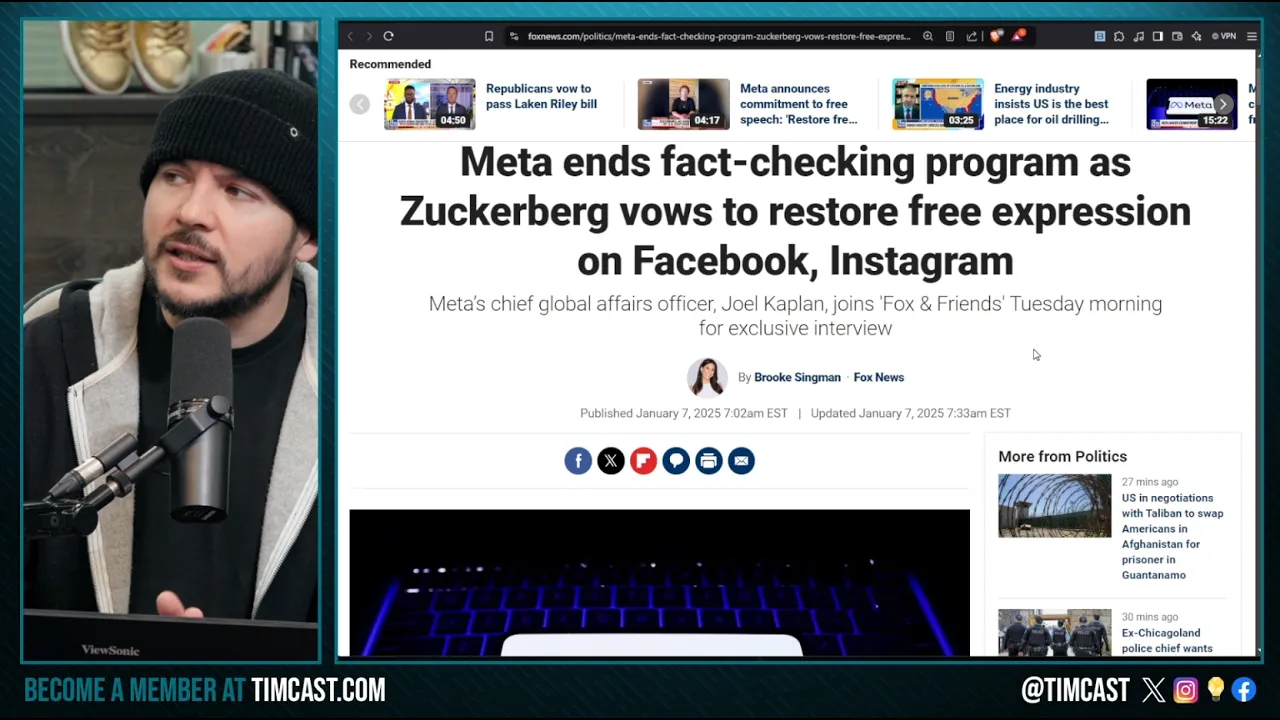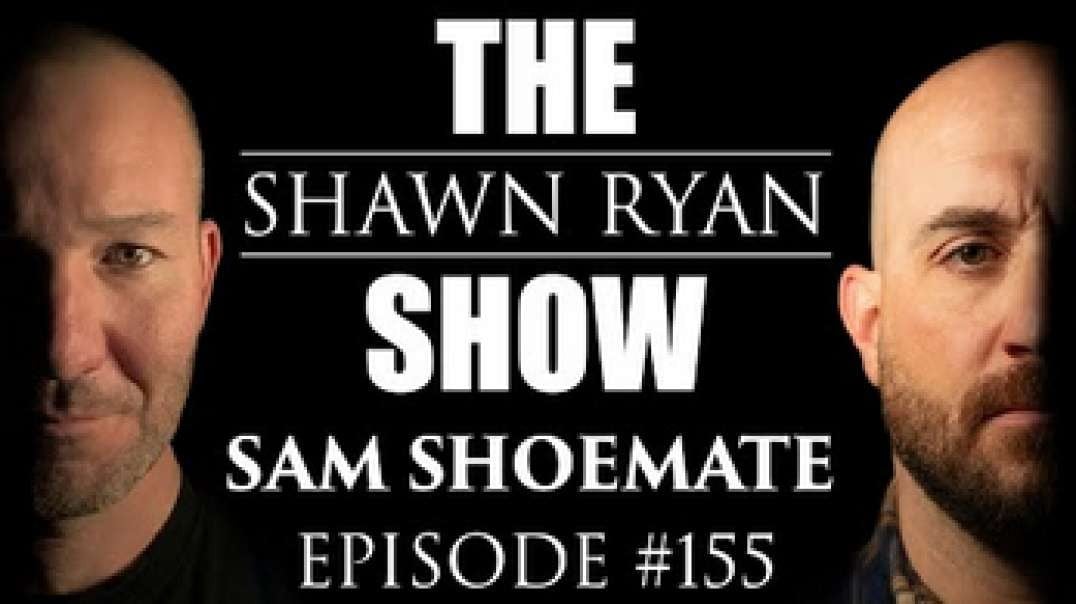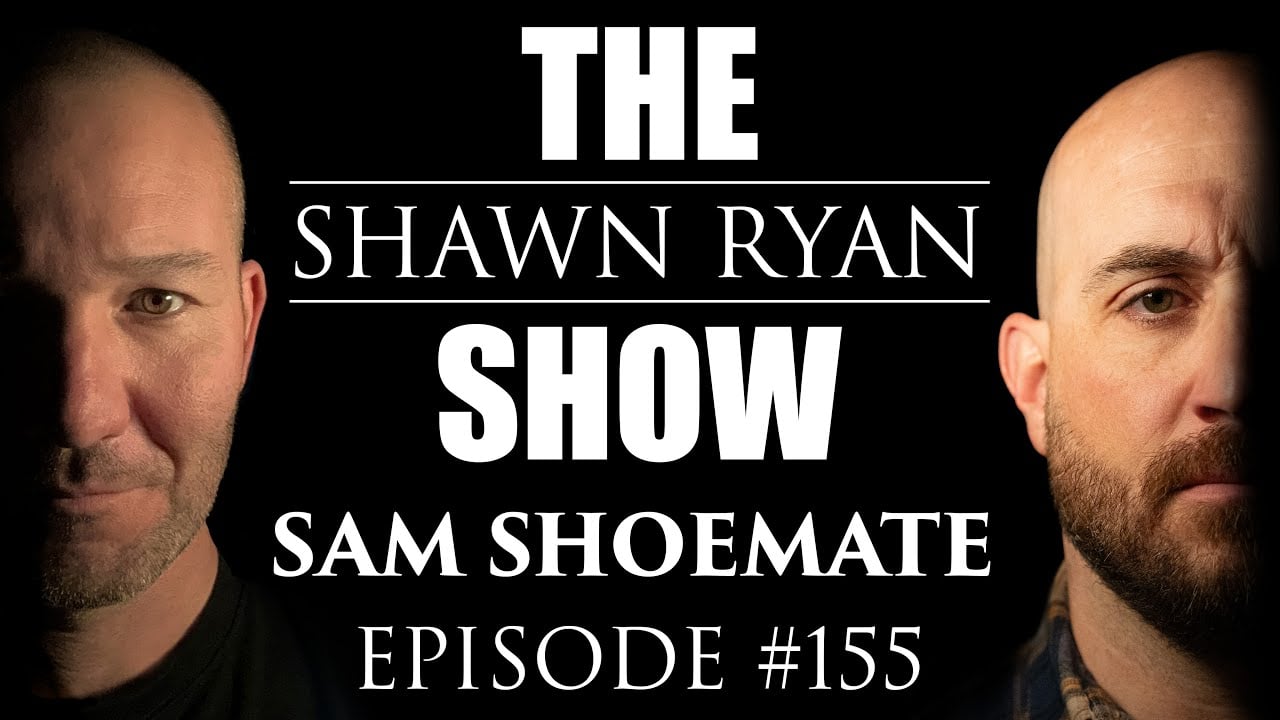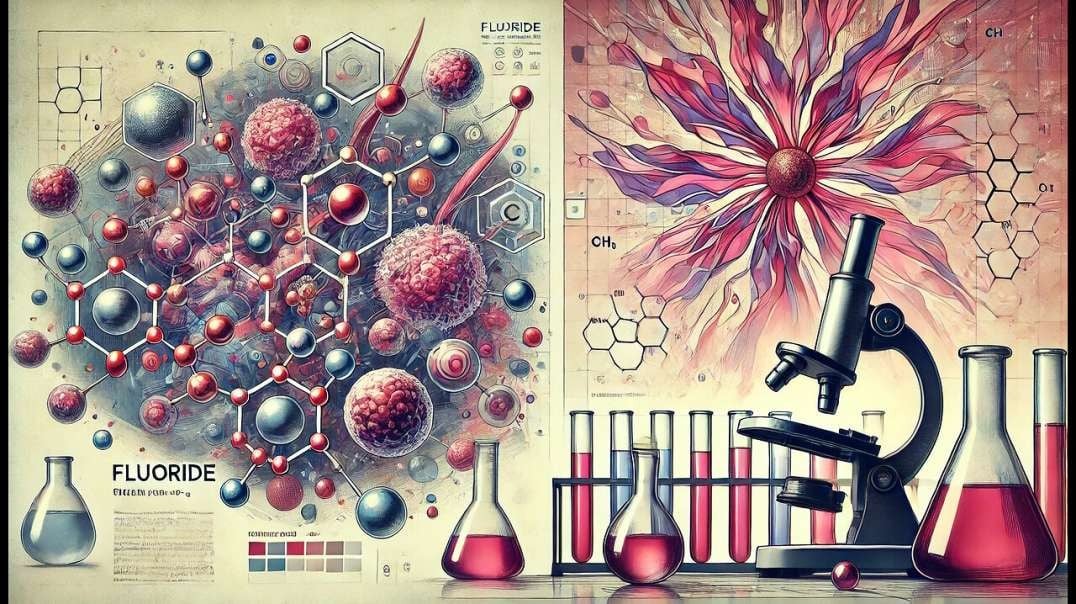Scientist Reveals How to BOOST NITRIC OXIDE to End Inflammation & LOWER Blood Pressure
Dr. Nathan Bryan is a nitric oxide scientist, entrepreneur, and author. He’s published several highly cited papers.
Original Video:
https://youtu.be/OgkMm0cmvMU
N1O1 (https://n1o1.com) Save 10% by using the code "ultimatehealth"
Subscribe to The Ultimate Health Podcast on YouTube: https://bit.ly/tuhpyoutube
(And be sure to hit the bell to get notified when new videos are released!)
In this episode, we discuss:
00:00 - Intro
00:38 - What is nitric oxide (NO)?
01:22 - The two pathways for nitric oxide production
02:39 - Supplemental arginine is not the NO solution
06:53 - Endothelial dysfunction increases as you age
08:40 - The top 3 things that disrupt nitric oxide production
12:14 - Organic produce has less nitrates than conventional
17:45 - The best advice for buying produce
21:44 - Why soil sampling is important
23:33 - Why you need to stop using mouthwash today!
28:13 - The American lifestyle shuts down nitric oxide production
31:35 - Fix your oral microbiome in 4 days
36:14 - Does tongue scraping affect heart health?
38:14 - The problem with antacids
45:37 - How to wean off acid reflux medications
48:41 - Should you take digestive enzymes?
49:39 - Glutathione and nitric oxide
51:47 - How long does nitric oxide impact the body?
55:13 - Dosing of nitrates
58:13 - Two signs of nitric oxide toxicity
1:00:03 - Nitric oxide testing options
1:11:39 - Debunking the myth that nitrites in meat cause cancer
1:17:03 - The history of meat curing
1:19:43 - Is beef a good source of nitrates?
1:23:17 - Nathans’s thoughts on plant toxins
1:24:43 - A MTHFR gene mutation limits nitric oxide production
1:26:53 - Human optimization defined
1:29:02 - The difference between nitriceuticals and nutraceuticals
1:34:36 - Nathan created a product that fixes endothelial dysfunction
1:41:09 - The truth about erectile dysfunction and Viagra
1:44:09 - Erectile dysfunction is a warning you NEED to pay attention to
1:48:25 - The benefits of sunlight and exercise for nitric oxide
Show notes: https://ultimatehealthpodcast.com/555
Listen & subscribe to The Ultimate Health Podcast
✩ Apple Podcasts: https://bit.ly/tuhpapple
✩ Spotify: https://bit.ly/tuhpspotify
Connect with The Ultimate Health Podcast
✩ Website: https://ultimatehealthpodcast.com
✩ Instagram: https://bit.ly/tuhpinstagram
#drnathanbryan #jessechappus #nitricoxide
About the Podcast
Jesse Chappus has in-depth conversations with health and wellness leaders from around the world. Topics include lifestyle, nutrition, fitness, self-help, sleep, meditation, spirituality and so much more. Tune in weekly to take your health to the next level!
Note: The N1O1 link above is an affiliate link. Making a purchase through this link won’t cost you anything (you actually save $) but we will receive a small commission. This is an easy, free way of supporting the podcast. Thank you!
Full Transcript below
Intro
0:00
for me it's no wonder why we have the sickest population on the planet everything we do is disrupting nitric oxide production if you can't make
0:06
nitric oxide you're going to develop chronic disease cardiovascular disease Alzheimer's diabetes chronic fatigue if
0:12
you use mouthwash you kill the nitrate reducing bacteria and you now you don't
0:17
get the benefits of eating a good diet so this is really the canary in the coal mine and it should be a warning signal
0:23
for people that have erectile dysfunction that hey this isn't just a sexual problem this isn't just a testosterone problem or an estrogen
0:30
problem in women this is a vascular problem insufficient nitric oxide
0:35
production and it's systemic what is nitric oxide and why does it
What is nitric oxide (NO)?
0:41
matter for our health well thanks Jesse it's great to be with you and that's a look that's a very important question
0:46
and really one we've been trying to answer for the past 30 years but today we know that nitric oxide is a signaling
0:52
molecule it's produced in the body naturally the older we get the less we
0:57
make and that's what's responsible for age-related disease but it really at its basis it's uh it
1:03
tells our blood vessels to relax and dilate so it improves oxygen delivering improves blood flow inhibits
1:09
inflammation oxidative stress and immune dysfunction the key Hallmarks of every single chronic disease
1:14
so now we understand how the human body makes nitric oxide What goes wrong in people that can't make it and now we know how to fix it
The two pathways for nitric oxide production
1:22
all right well let's start talking about what happens when the body isn't making it correctly I know there's two
1:28
different Pathways so let's take each one and get into the Nuance there so about
1:36
let's first recognize that there's an enzyme in the lining of the blood vessel called nitric oxide synthase
1:41
and that enzyme converts L-Arginine which is an amino acid into nitric oxide
1:47
so that was the first Pathway to be discovered now I just want to make a point that the first Pathway to be discovered doesn't necessarily mean it's
1:53
the most important or prominent it was just the first to be discovered so this enzyme converts Arginine to
1:59
nitric oxide and you get citrulline as a byproduct and it's the second to Second production of nitric oxide that
2:05
regulates the second to Second blood flow and oxygen deliberate every organ tissue and cell in the body
2:11
and it's the dysfunction of that enzyme and we call that endothelial dysfunction
2:16
so the older we get the less nitric oxide we make we call that endothelial dysfunction we have decreased blood flow
2:23
decreased oxygen delivery to every cell in the body then we have inflammation oxidative stress and immune dysfunction
2:29
so that's the first pathway it's very well elucidated we know the enzymology the biochemistry of that pathway we know
2:35
what goes wrong in people that can't make it and we know how to fix it now the other pattern right before we jump into number two I want to I want to
Supplemental arginine is not the NO solution
2:41
pause here and take some time and get into the subtleties there so arginine is
2:46
the amino acid you mentioned that is the first step of this pathway
2:51
we know that as we get older this doesn't work as well talk about where the Arginine comes from
2:58
if it's an amino acid I assume the diet and then let's get into where things go awry and why as we age does this not
3:05
work as well now it's a fundamental question if you want to understand chronic disease and
3:10
keep from getting chronic disease so L-Arginine is a substrate that this
3:16
enzyme uses to make nitric oxide and it's a semi-essential amino acid semia Central meaning that you get part
3:23
of it from your diet so the breakdown of proteins proteins are made up of individual amino acids arginines of
3:29
common constituent of most proteins and then it's also made through the urea cycle so the human body makes Arginine
3:37
on its own so even if you're not getting enough from your diet you make enough through the urea cycle to theoretically
3:44
saturate the enzyme to make nitric oxide so this whole concept of supplementation
3:51
of L-Arginine has never made sense to me biochemically because there's never a condition where
3:56
patients or sick people are deficient in arginine so it doesn't make sense to give the body more in fact we now know
4:02
that if you give the body more it can actually do more harm than good so the body makes enough L-Arginine to
4:10
where you don't have to supplement if you supplement there's at least two clinical trials showing that actually patients get worse post-informed
4:16
patients meaning people who have just had a heart attack in 2006 they published a study that the people were
4:22
getting high dose Arginine actually had a greater mortality it was killing more people than the placebo
4:27
and then a similar study and I think 2011 in patients with peripheral artery disease give them high dose cell
4:33
Arginine they got worse so we knew we've we've known for many many decades now that arginine is not the solution for
4:40
nitric oxide deficiency in fact it can be counter uh productive and cause more
4:46
harm so what happens and the reason people become nitric oxide deficient is the
4:51
enzyme that converts Arginine to nitric oxide becomes uncoupled so there's a there's a flow of electrons
4:57
through this enzyme you get many different cofactors and substrates and when this enzyme becomes uncoupled then
5:03
it can't transport this flow of electrons to the five electron oxidation of Arginine and production of nitric
5:08
oxide so with now we know what causes enzyme uncoupling it's the oxidation of
5:13
tetrahydrobotron we provide a certain redox potential or an electric potential to prevent the oxidation of bh4 you
5:22
recouple the enzyme and now we can improve endogenous nitric oxide production without the need for
5:27
supplemental Arginine or citrulline or anything like that so that's the basic biochemistry of that pathway okay there's a lot in there I
5:34
want to unpack so we know that the substrate Arginine isn't the rate limiting part of this
5:40
whole thing we know that actually if we take in too much it can cause problems I'm curious in those studies where they
5:47
did find there was problems where people were taking that what was the physiology there well when
5:53
you when you have an uncoupled nitric oxide synthase enzyme and you give high-dose arginine this enzyme actually
5:59
produces superoxide which is an oxygen radical and causes more damage causes increased inflammation oxidative stress
6:05
and immune dysfunction so the patients got worse the other problem we worry about is if you give high-dose arginine
6:13
you know the body has enormous redundancy in it and it only it regulates what it needs in certain
6:18
Pathways so if you give high-dose Arginine you get an increase in expression of an enzyme called arginase
6:23
and then you divert the Arginine which would normally go through the nitric oxide pathway away from the nitric oxide
6:30
pathway and through ornithine and urea disposal so you can actually divert and
6:35
basically have unintended consequences of what you're trying to achieve by giving high dose Arginine so I tell
6:41
people arginine is not your problem or it can be a problem if you're using arginine-based supplements uh save your
6:48
money save your health you don't need them in fact if you don't know what you're doing it can cause more harm okay
Endothelial dysfunction increases as you age
6:53
so let's focus in now on the enzyme so we have this enzyme in the endothelium it becomes uncoupled and this is where
7:00
the issue is is this just something that happens natural it sounds like it is but is this
7:07
just something that happens naturally as we age or are there certain things that we can do to slow that down or the
7:13
things we're doing that are speeding that up that we can control all of the above
7:19
if you look at population based kind of studies what we see is we lose about 10
7:24
to 12 percent of the function of that enzyme per decade so really by the time you're 40 or 50 years old you only have about 50 percent
7:30
of that function of that enzyme that you had when you were 20. now we know that that's not neces that doesn't have to be
7:36
the case right so I'll be 50 in a couple of months but I have a biological age of a 38 year old and we know we have 18 20
7:44
year old kids who have the biological age and the vascular age of a 50 60 year old they have severe endothelial
7:50
dysfunction so we can now modulate the activity of this enzyme so the rate limiting step is
7:56
is oxidation oxidative stress so because we live in a toxic World we're exposed to EMF we're exposed to herbicides
8:03
pesticides we're exposed to a western diet poor diet processed foods a lot of
8:08
sugar all of those conditions lead to an awesome coupling and nitric oxide deficiency
8:14
but if we take into a can and eat an anti-inflammatory diet if we get regular moderate physical exercise if we're
8:21
exposed to sunlight you know 20 or 30 minutes a day all these things facilitate and we take
8:26
antioxidants to prevent oxidative stress then we can preserve the function of this enzyme and prevent this age-related
8:33
decline in nitric oxide production and to me that's the Holy Grail in cardiovascular medicine and really
8:38
Health and Longevity okay so there's these different lifestyle factors you named a bunch of them where we can
The top 3 things that disrupt nitric oxide production
8:46
prolong at least the degradation of the uncoupling of that enzyme
8:51
and food was part of that and this is where it gets a little bit more complex there's a second pathway that involves
8:57
certain foods where we can boost I know
9:02
so let's bring the second pathway in now and then we're going to tie all this together yeah that's really the remarkable thing about human physiology
9:08
and I'm always intrigued by how the human body works so we've known for centuries right diet
9:15
and exercise is essential for health and well-being and longevity but come to find out about 20 25 years
9:23
ago we discovered a pathway whereby the mechanism of certain diets like a
9:28
Japanese diet a plant-based diet Mediterranean diet dietary approaches to stop hypertension all of these diets
9:34
that through epidemiological evidence have been shown to reduce blood pressure reduce cancer rates improve longevity
9:40
and and lifespan the mechanism of those diets revolves around a molecule called
9:47
inorganic nitrate and this is a molecule found primarily in green leafy vegetables things like beets arugula
9:53
spinach kale the darker the green leafy vegetable typically the higher the nitrate content well when we consume these vegetables
10:00
about 90 minutes after we consume them the nitrate is taken up in the gut it's
10:06
concentrated in our salivary glands and now for the next six eight ten hours each time we salivate we're secreting
10:12
nitrate and if we have the right oral bacteria in our mouth the night the bacteria reduce nitrate to nitride and nitric
10:18
oxide so this is the first metabolic activation step of the diet
10:24
so we're 100 dependent upon the bacteria that live in and on our body to activate nitrate so that the body can
10:31
utilize it to make nitric oxide and now our saliva becomes enriched in nitrite so when we swallow our own
10:37
saliva we get a burst of nitric oxide gas in the stomach and that nitric oxide from swallowing around saliva kills
10:43
things like H pylori the ulcer-causing bacteria E coli salmonella clostridium so if you've got a bacteria on the foods
10:51
or the lettuce or the spinach or vegetables you're eating then it kills it through normal nitric oxide production in the Lumen of
10:59
the stomach so you may have caught three important points there number one we need enough
11:04
nitrate from our diet number two we have to have the right bacteria and number three we have to have sufficient stomach
11:10
acid production and this is where Americans get it completely wrong
11:16
and we've Quantified this we know the standard American diet doesn't contain enough nitrate to fuel this pathway
11:23
two out of three Americans wake up every morning use mouthwash killing the oral microbiome shutting down nitric oxide
11:28
production and there are 200 million prescriptions written for antacids every year and that's not even counting the
11:34
over-the-counter purchases you can get Prilosec Prevacid Nexium all these over-the-counter products and people
11:40
have been on these antacids for you know 5 10 15 sometimes 20 years and this
11:45
completely shuts down nitric oxide production so it's just the the American lifestyle it seems like every every part of the
11:52
American lifestyle leads to a decrease in nitric oxide production so for me it's no wonder why
11:59
we have the sickest population on the planet everything we do is disrupting nitric oxide production if you can't make nitric oxide you're going to
12:05
develop chronic disease cardiovascular disease Alzheimer's diabetes chronic fatigue it's what Americans are faced
12:12
with today most Americans all right a lot in there 10-pack I'm going to try and summarize a little bit here for us so we take in nitrates
Organic produce has less nitrates than conventional
12:19
through the diet dark leafy greens best source the bacteria in the mouth are going to
12:27
convert nitrates to nitrites and this happens as the food is passing
12:32
over our tongue also as we take in the nitrates there's a pathway in our body
12:39
that recycles them all the way back through the saliva onto the tongue again so there's the two different ways that
12:45
that happens then we need the stomach acid when we swallow that saliva to turn the knights
12:51
right into nitric oxide do I have that right you got it
12:57
well let's start with there's these three pieces that we need to be cognizant of and need to make sure we're
13:02
optimizing you mentioned them there and I want to get into each of the three and make sure that we know how to do that
13:07
starting with the dietary piece we know again leafy greens this is where we're gonna get our nitrates
13:15
let's talk about the absolute top sources in that category and then what we're looking for because
13:22
for example I know spinach is is a good source or beets which beats is a little bit different
13:28
not obviously part of the leafy greens but there are different factors as we're
13:33
growing these and such that can influence how much nitrate are in the produce so let's really pick this apart
13:39
we know we we attempted to answer I think the question you're trying to pose is if we wanted to use diet as a first
13:46
line defense for preventing nitric oxide deficiency how much spinach celery broccoli kale
13:53
arugula would you need to eat to reach that threshold of nitrate so the body can convert it to nitric oxide
14:00
instead of answer that question in collaboration with Texas A M University we went to five cities across the U.S
14:05
and we just took vegetables off the shelf we brought it back to the lab and we analyzed it for the nitrate
14:10
content and we went to Raleigh New York Chicago Dallas and Los Angeles kind of five
14:16
corners of the U.S what we found was you know it's really pretty shocking to
14:22
us we we figured there would be some variability but you know there's as much as a 50 to 80 fold difference in the
14:28
nitrate content of vegetables bought and grown in New York compared to those
14:33
bought and grown in Los Angeles or Dallas so then when we uncover this a little
14:38
bit more we realized well there's different farming practices on different parts of the US there's
14:44
different soil conditions certainly different climate conditions and then we realized there's certain
14:49
number of lightning storms in these different areas and so nitrogen is fixed in the form of nitrate primarily through
14:54
lightning storms so to break the triple bond of nitrogen you need high energy and really that
15:00
only occurs through lightning things so we're finding that in areas kind of in the the Rust Belt of the South where
15:05
there's a lot of thunderstorms the soil seems to have more nitrate in it and then other regions for for whatever
15:12
reason they may not and then the other shocking thing so the point of that is we really couldn't make any
15:17
recommendations on how many servings of a given vegetable you would need to eat because it depends on where it was grown
15:22
what the end what vegetable was because there's Regional difference then there's High variability from you know celery
15:28
broccoli kale spinach across vegetable categories and then we did something a little bit
15:34
on top of that we took organically grown vegetables so these are vegetables that have an organic label and then we
15:40
compared those to conventionally grown vegetables and on average the the organic vegetables had about 10 times
15:47
less nitrate across the board and now when you you got to think about
15:52
that for a minute because most people think organic is good I should eat organic but from our studies if you're eating is
15:58
only organic you become nitrate deficient and I think perhaps more importantly you need nitrogen in the
16:04
form of nitrate to assimilate other minerals and nutrients so if a vegetable is deficient in
16:10
nitrogen or nitrate it's not going to assimilate other nutrients so now these vegetables are deficient in things like
16:16
magnesium chromium selenium all the trace minerals and vitamins and nutrients that we used to get
16:22
so I tell people you it's really difficult to eat enough organic vegetables to get enough nitrate in your
16:28
diet to stimulate this nitric oxide production pathway an organic means that
16:35
one no herbicides no pesticides but there's a restriction on nitrogen-based fertilizers added to the soil you can
16:41
organically grown vegetables so for instance what I do when I grow my vegetables we raise our own beef we grow
16:47
our own vegetables but I still I sample the soil and send it off in for an analysis to figure what's missing in the
16:53
soil why do I need to supplement and then I add standardized nitrogen to the soil so I know that my soil is enriched
17:00
in nitrogen so the vegetables that I'm eating and I'm growing here in my own range it wouldn't be classified as organic
17:07
because I'm adding fertilizers but I'm not adding herbicides or pesticides so I think there's a fine balance here and I
17:14
think people are so caught up in this whole concept of organic and they really don't know what in the hill organic
17:19
means they've been taught by the media that it's you know it's good it's healthy well I think it's free of
17:25
herbicides and pesticides but we now know that the vegetables grown in the U.S since 1940s have about a 78 percent
17:32
less vitamins and minerals and nutrients since the 1940s
17:38
so the pressures of feeding a growing planet population is at the expense of
17:43
nutrient density let me just pause you right there because there's a lot I want to get into within what you've just
The best advice for buying produce
17:48
shared so we know that in general organic has less nitrate
17:55
so and you explain the whole nitrogen being added to the soil and the reason for that
18:02
you mentioned the fact that you're growing your own food so you can add that back in and not add the poisons
18:08
what do you recommend to people then if they're not able to grow their own food they don't have you know the time the
18:14
land whatever it is and they're they're buying from a grocery store and up till this point
18:20
they've been buying organic can we just make up and there's another piece of this I want to make sure and
18:26
tease out and this is something I haven't heard you talk about before I think the part about the nitrate not
18:32
being in the soil is easy enough to understand but you mentioned the fact that it affects the different nutrients
18:37
beyond the nitrate so I know I threw a lot at you I want to understand that second part where it's
18:43
affecting more than just the nitrate and then also on top of that for somebody who isn't going to grow their
18:49
own food what's the best they can do you know there's the whole field of agronomy on
18:54
how do you maximize product yield and nutrient density and so go back a
19:01
hundred years ago you know Farmers used to do crop rotation so they would grow crops that would deplete certain
19:07
minerals and nutrients from the field then they would go back and plant the same soybean or Clover or some vegetable
19:13
that would replete those nutrients back in the soil so crop rotation allowed for fertile grounds now you see these fields
19:20
that are just all they do is is grow corn all they do is grow soybean or or a cotton so there is no crop rotation
19:28
so we have to assimilate nutrients in the plants that we grow and you do that
19:33
through nitrogen and nitrogen assimilation in the form of nitrate
19:38
so if the soil is deficient in nitrate it's most likely going to be deficient in other trace minerals and nutrients
19:44
but more importantly is and you can see this fertilized versus unfertilized
19:50
vegetables the fertilizer really dark green they have higher yield the
19:56
unfertilized is a light green less nutrient less yield so in the organic world you know you can
20:03
add manures you can add organic compost but again there's so much variability in there there's no standardization of the
20:08
nitrogen so you don't even know what you're getting it from in fact the manure the compost may not have any nitrogen in it
20:14
so what I tell people is Buy Local you know go to your local farmers market talk to your local
20:20
farmers support the local Growers and then ask them questions say hey here's what I'm interested in
20:27
and you know people who live in really urban areas and inner cities you know it's very difficult
20:33
so then really the only solution for them is they've got to do what I call a micronutrient analysis you can go get
20:38
your blood tested and figure out exactly what what are you deficient in and then you can start to develop kind
20:44
of some personalized supplementation you know we know just broadly from the inhaling study from the US government
20:50
that 75 of Americans don't get enough magnesium 95 percent of Americans are deficient in iodine
20:56
65 75 percent are deficient in chromium um selenium these trace minerals and
21:02
this is what causing a lot of chronic disease you know Linus Pauling said you know famously 50 60 years ago that most
21:08
chronic diseases are caused by nutrient deficiencies if we don't have these trace minerals
21:13
and nutrients then the body can't do what it's designed to do and you become dysfunctional you get sick so it's it's a very it's a very
21:20
interesting question but it's the solution isn't very simple right so you have to be resourceful but I think the
21:27
simple thing is Buy Local from your local farmers market and then ask these Farmers questions how are you growing
21:33
your Foods how are these vegetables do you add herbicides pesticides uh I
21:38
certainly don't want that in my food supply but we also I also want nutrients directly from the source
Why soil sampling is important
21:44
okay so the part I'm still a little fuzzy on the fact that the other
21:49
nutrients are low in the organic as well is that just because when they add the
21:55
fertilizer they're adding other things to the soil and upping those nutrients so I get the fact that the nitrogen
22:01
isn't being added and that's where the nitrate is lower but is there something to the other
22:06
nutrients and why they're lower in the organic as well I'll give you an example so when I
22:12
fertilize my my land I get nitrogen I get potash get potassium and sulfur so
22:20
there's a four kind of four main elements that we're adding to the soil so nitrogen in the form of nitrate
22:28
um and you get potash and so I use a mix because the soil samples tell me this is what I need for this type of land that
22:34
I'm I live on and grow in so I know for instance is 28 nitrogen 14
22:40
uh 14 7 and then three and a half percent sulfur so I'm putting all these nutrients in the soil so that now the
22:47
plant has a way and the nutrients it needs kind of like the human body the plant now has what it needs to
22:52
assimilate transport all the other nutrients in the soil provided those nutrients from the soil
22:57
but if you don't test your soil and they're deficient in certain things then the plants can't assimilate it because
23:02
it's not available and I think that's why Soul sampling is so important so you know exactly what's
23:08
in your soil or what's not in your soil and then you can put in there so that you have a nutrient dense food that
23:15
you're growing in that soil so it's it's a matter of availability and just not knowing but it's also important because
23:22
even if you have those nutrients in the soil without nitrogen in the form of nitrate you don't assemble or transport
23:29
those nutrients and assimilate them into the vegetable or the plant that latter part is what I was trying to
Why you need to stop using mouthwash today!
23:35
clarify so that's great so we know that when we're growing produce in different areas of the
23:41
country we're going to have different amounts of nitrogen we know organic versus conventional is
23:48
going to have a different amount I took you on a tangent there so continuing your thought process when it
23:53
comes to nitrates in the produce so I guess the point trying to make is
23:59
that this and we've we've we've Quantified this so we took a standard American diet just what most Americans would eat and
24:07
we grind it up and we quantify the nitrate content and Americans are only getting about 150 milligrams of nitrate
24:14
per day through normal dietary patterns and we need at least 300 milligrams to
24:20
see any trickle of nitric oxide production because the inefficiencies of conversion so number one we're not getting enough
24:26
nitrate uh and then number two those that eat a plant-based diet they're not even guaranteed to get enough nitrate
24:33
because depending on where they live what vegetables they're eating organic versus conventional you may not even
24:39
getting enough nitrate to reap the benefits of a plant-based diet so if we took kind of the best case
24:45
scenario and so we published on this we took a Japanese diet we took a Mediterranean diet the dietary
24:51
approaches to stop hypertension and we just took food choices from those dietary patterns and we Quantified the
24:58
nitrate that one eating those diets would would consume over a period of a
25:03
day and we see anywhere in those diets from you know 400 milligrams up to 1500
25:09
milligrams in a Japanese diet of nitrate so now what you're getting is you're
25:14
getting sufficient nitric oxide being produced from those diets provided you have the right bacteria and you can make
25:21
stomach acid so that that kind of follows step one the problem is we're not getting enough
25:26
nitrate from our diet because of the the variability in vegetables and Regional growing
25:32
techniques in organic versus conventional number two and we stumbled upon this
25:37
probably 20 years ago if you use mouthwash you kill the nitrate reducing bacteria
25:43
and you now you don't get the benefits of eating a good diet and think about this I mean people
25:48
people mostly have good intentions right they try to learn as much as they can they try to listen and assimilate all
25:55
the information they're getting bombarded with on TV the media advertising and you see the commercials
26:01
wake up every morning use Listerine use scope it kills 99.99 of the bacteria in
26:06
your mouth well that's not a good thing you know we and others have published that if you
26:12
use bath wash your blood pressure goes up and you lose the cardio protective benefits of exercise and you lose the
26:19
benefits of eating a healthy diet so the worst thing you can do is use mouthwash
26:24
and I try to put this in perspective because most people this is kind of like the aha moment for a lot of people like
26:30
oh well I'm doing damage by using mouthwash yes the
26:35
we've known for many many decades that you don't take an antibiotic every
26:40
day for the rest of your life right if you've got an infection you take a regimen of antibiotics 7 10 14 days and
26:47
then you stop you kill the bad guys but you don't continue to take antibiotics because of the collateral damage
26:53
it's mostly non-selective killing right so we're killing the bad guys but
26:58
we're also killing the good guys and there are a number of problems that occur from that we kill the gut bacteria
27:04
get gut dysbiosis he gets systemic disease well the same thing happens in your mouth when you kill the oral
27:09
microbiome in your mouth every day sometimes twice a day there's consequences to that and the number one
27:16
consequence is it shuts down nitric oxide production causes an increase in blood pressure you lose the benefits of
27:22
exercise and you can no longer get nitric oxide from this secondary pathway so I tell people all the time look if
27:29
you're using mouthwash you have to stop I mean the risk benefit kind of quotient there is all risk no benefit so you have
27:37
to stop and then the other important thing that a lot of people don't even consider either as fluoride you
27:43
know most toothpastes have fluoride and fluoride is put in toothpaste because it kills bacterium it's an antiseptic
27:50
so you have to get rid of fluoride in your toothpaste the other major problem is most Municipal Water Systems are
27:56
fluorinated they put fluoride in the water in the drinking water why to kill the bacteria
28:01
so now when you're drinking them with water you're killing the good bacteria you're killing the bad bacteria you're
28:06
shutting down your thyroid function and fluorides and neurotoxin so we have to rid our body of fluoride
The American lifestyle shuts down nitric oxide production
28:13
I want to highlight the importance of this second step here the fact that we have these bacteria on our tongue and if
28:20
we're killing them through things like fluoride or mouthwash we're limiting this whole second pathway
28:25
and we already know that the first pathway is going to decline naturally as we age so I can only imagine the number
28:31
of people that are getting older their first pathway is degraded down
28:36
and they're using something like mouthwash or even drinking unfiltered water and getting fluoride and killing that bacteria
28:43
and then you clarify if I'm wrong but as far as I know from preparing and reading
28:48
your book and digging into your work there is only these two Pathways so if you're
28:53
impacting them both in a negative way the first one just by you know we talked about living a healthy lifestyle helps
29:00
accentuate that but aging is going to dampen it naturally it's so easy to mess this up is what I'm
29:07
getting at that's right yeah it seems like I said everything we do from an American lifestyle is designed
29:15
to shut down nitric oxide production now what happens your blood pressure goes up that's the number one risk factor for
29:21
the number one killer of men and women worldwide which is cardiovascular disease nitric oxide is important for insulin
29:27
signaling so you develop insulin resistance type 2 diabetes you start to develop mild cognitive disorders and
29:32
vascular dementia eventually Alzheimer's you don't have the energy to exercise because your mitochondria aren't
29:39
producing enough energy so everything we know about the onset and progression of age-related chronic
29:44
disease can be traced back to insufficient nitric oxide production then some people have to ask yourself
29:50
well what am I doing to disrupt my nitric oxide production well you're not getting enough vegetables you're not getting enough nitrate two out of three
29:56
Americans use mouthwash every morning and not coincidentally two out of three Americans have an unsafe elevation in
30:01
blood pressure and think about this if you have high blood pressure you go to your doctor and
30:07
he puts you on a blood pressure medicine right and 50 of the people that are on blood pressure medicine don't respond
30:14
with better blood pressure we call this resistant hypertension it's resistant to standard pharmacotherapy
30:21
so why is that well these drugs aren't targeted towards the oral microbiome
30:28
there's ACE inhibitors that that you know mechanistically that are affecting the Angiotensin converting enzyme
30:35
shutting down aims 2 production there's calcium channel antagonists there's beta
30:41
blockers diuretics so the reason that these patients are resistant to standard therapy is because it's the wrong target
30:49
if they don't have a radon Angiotensin problem they don't have a calcium dysregulation they don't have a fluid imbalance so ACE inhibitors arbs calcium
30:57
channel antagonists and diuretics aren't going to affect their blood pressure hypertension is a symptom of oral
31:02
dysbiosis so now we're finding if you're using mouthwash and you stop and allow this
31:08
microbiome to repopulate and do its job blood pressure will normalize and now
31:13
you can get off medications and Americans especially older Americans are over medicated
31:19
they're put on one medication two three four I know people who are on 10 12 15 different medications and the human body
31:25
cannot and will not heal or perform when there's that many synthetic enzyme Inhibitors at one time I mean that's not
31:33
how the human body is designed to work okay so for the person tuning in here they're one of the two-thirds of
Fix your oral microbiome in 4 days
31:39
Americans that have been using mouthwash to this point they're going to stop today
31:44
but now they're worried that they've killed the good microbiome in their mouth what do they do how can they accentuate
31:51
bringing that back I'm assuming there's a way and then how long does it take you know we published on this I think
31:57
and we published a seminal paper in 2019 and we designed this experiment to
32:03
answer that question so we took normal healthy individuals that had normal blood pressure and for
32:10
seven days we just use mouthwash twice a day and at the end of seven days we measure their blood pressure we did
32:16
tongue scrapings to figure out well before and after see what happened to the oral microbiome and then we stop the
32:23
mouthwash for four days then after four days let's see what happens to their blood pressure and let's see what
32:28
happens to the microbiome so the results of that study were after seven days of using mouthwash in
32:35
otherwise normal intensive patients we saw an increase in blood pressure in fact in one person we saw a 21
32:40
millimeter increase in blood pressure 21 year old triathlete Dental student his blood pressure went up 21 millimeters of
32:47
mercury in one week just by killing the bacteria in his mouth no change in diet no change in exercise activity the only
32:55
thing we did was kill this bacteria and we made him clinically hypertensive and then fortunately once we stopped
33:01
four days later the microbiome had completely repopulated and his blood pressure completely normalized
33:08
so this population is really resilient in the fact that if you stop killing it
33:14
daily it repopulates we just got to give these bugs kind of what they need so number one get rid of
33:21
fluoride get metal mouthwash and then start eating more green leafy vegetables because these are what we call nitrate
33:27
reducers they're facultative anaerobic bacteria meaning that if Oxygen's around they can respire on oxygen if oxygen is
33:33
not around then they were spiral nitrate so the more nitrate-rich vegetables you you consume we're feeding these bacteria
33:41
a normal respiratory substrate that they can rely on and respire on and they'll repopulate and the beauty about that is
33:48
we also published in that study that the greater the diversity the oral microbiome
33:54
the healthier the microbiome and the better management of blood pressure so we need diversity there's biofilms
34:01
there's different communities on the dorsal part of the tongue on the gingival tissue so this is the ecology
34:06
in the mouth is is quite remarkable but it's very resilient so even if you've been using mouthwash for months or years
34:13
once you stop at least the data from our study published study shows that within four
34:18
days these bacteria will completely repopulate now you just got to feed them feed them the good stuff all right so we know from before we
34:25
touched on this quickly the fact that the bacteria on the tongue feed on nitrates and they can feed on them as food as
34:32
being chewed and before it's swallowed and then also there's a secondary system thankfully that digests and then brings
34:40
the nitrates back up through the saliva and then we get a second chance at feeding those bacteria no that's kind of
34:47
this the second what we call A Time release so now each time you secrete you salivate you're secreting nitrate in the
34:53
saliva and this is a very inefficient system so we can quantify this
34:59
so the the nitrate that's let's let's call wheat 150 grams of spinach salad 90
35:05
minutes after we consume that the nitrate that's in that spinach only about 25 percent of that's going to be
35:11
taken up in the gut right so about a third about a fourth of the load that you're getting from the
35:16
diet is taken up in the gut and then concentrated in our salary glands the rest is distributed throughout the
35:22
circulation filtered through the kidneys you excrete some some is reabsorbed
35:27
and then only about 20 percent you only get about 20 percent reduction efficacy of the bacteria in the mouth so each
35:34
time you salivate so 25 absorption uh 20 reduction that's five percent of the
35:41
total nitrate load we're reducing into or metabolizing into nitrite and nitric oxide
35:48
so and we we've Quantified that we can we can verify it stoichiometrically I mean this is a very beautiful system so
35:54
I think it's an inherent inefficiency because it allows the body to produce nitric oxide over a long period of time
36:00
in A Time release manner provided that we have normal salivary secretion we
36:06
have normal nitrate reducing bacteria on the crypts of the tongue and that are parietal cells in our stomach can
36:12
produce stomach acid okay so we know when it comes to the bacteria in the mouth you've mentioned fluoride
Does tongue scraping affect heart health?
36:17
mouthwash those are both going to kill it what about things like gum people are
36:23
chewing um tongue scraping I'm just trying to think of different inputs into the mouth
36:29
and how they might benefit or cause damage there to the to the microbiome
36:34
yeah there's there's a lot of unanswered questions still so for the most part there's a lot of you know the answer is
36:40
we don't know but here's what we do know tongue scraping in that same study we found
36:46
that people who did Daily Tongue scrapings had the greatest diversity the oral microbiome and had the best blood
36:52
pressure but if you tongue scraped and use mouthwash those were the patients who
36:58
had the greatest increase in blood pressure upon malfoids so that our interpretation of that data was if you
37:05
do tongue scraping and don't use mouthwash that seems to be very beneficial and I I equated to like
37:11
tilling the soil right when you scrape the tongue you're basically kind of tilling the soil and
37:17
and and kind of allowing these these organisms and bacteria to repopulate and diversify
37:24
and that seems at least in our study to have better blood pressure management
37:29
um things like chewing gum I think it depends on if it's sugar a lot of sugar in the gum then you know sugar causes an
37:37
overgrowth of you know acid producing uh bacteria in the mouth and
37:42
carries and cavities and bad things there's other things like essential oils that we don't have any interest to
37:49
things like oil pulling I get questions all the time and these are things that we just don't know we haven't researched
37:54
it but unless it's antiseptic and kills non-selective
38:02
bacteria the good the bad then I think it's probably gonna be fine if it's if
38:07
it's antiseptic it's not going to be good if the oral hygienic practice isn't killing any bacteria like tongue
38:13
scraping is a killing thing it's just kind of allowing a disturbance of the of the terrain
The problem with antacids
38:19
um so yeah I think you know again there's a lot of answers that we don't have but
38:26
what we do have it's pretty clear that you can't use antiseptic mouthwash you can't add fluoride to your to your body
38:32
in any capacity whatsoever and then just eat a balanced diet in moderation with some more green leafy vegetables and
38:38
sometimes it's really that simple all right we're going to move into step three so for somebody that's lucky enough to get by step one and two taking
38:46
in nitrates they have the bacteria in their mouth they haven't killed that so now they have nitrite
38:52
which they're gonna swallow and go into the stomach we need an acidic environment to take
38:58
the nitrite and form nitric oxide you mentioned the antacids and how
39:04
that's a problem and and I'd like you to get further into that to start and then we'll talk about other things to do with
39:09
the gut so biochemically speaking nitrite so
39:14
nitrate to nitrite is a two electron reduction and then nitrite to nitric oxide is just one electron so it's about
39:20
chemists we count electrons so we have to we have to balance equations when we when we do this chemistry
39:26
so the pka of nitrite meaning the the the pH in which nitrite becomes
39:31
protonated to generate nitric oxide is 3.4 and that means that a pH 3.4 50 of the
39:37
nitrite that we swallow is going to generate nitric oxide gas the lower the ph the greater the efficiency of
39:43
protonation and conversion to nitric oxide so when we do that again the nitrite
39:48
becomes nitric oxide we can detect it in the limit of the stomach it kills bacterium kills H pylori the
39:55
ulcer-causing bacterium enhances gastric mucosal blood flow so now you've enhanced the blood flow to the stomach
40:01
so you can absorb nutrients like magnesium iron iodine chromium B
40:06
vitamins so it's facilitating this fundamental physiological response to to
40:12
nutrient absorption if you can't make stomach acid because you have a chlorhydria for whatever
40:19
reason or you're using an antacid now you shut down stomach acid production
40:25
you eliminate the nitric oxide benefits of swallowing your own saliva so now you
40:30
can get overgrowth of bacterium H pylori you can develop gastric ulcers you
40:35
become nutrient deficient without sufficient stomach acid you can't absorb iron you become anemic you can't absorb
40:41
B vitamins you can't absorb zinc chromium selenium a lot of these trace
40:46
minerals and nutrients but more importantly again you shut down nitric oxide production from the
40:53
disproportionation of nitride to no but in 2013 2014 there was a paper
40:58
published that these antacids specifically what's called proton pump inhibitors things
41:04
like Omeprazole pantoprazole they actually inhibit nitric oxide being
41:09
produced from the enzyme nitric oxide synthase so these drugs PPI specifically
41:15
are shutting down both nitric oxide production Pathways and people who take
41:20
these drugs are completely devoid of nitric oxide now the consequences of that are
41:25
apparent now in 2015 it was reported that people who have been on ppis for three to five years had a 40 percent
41:31
higher incidence of heart attack and stroke not risk of heart attack and stroke actual heart attack and strokes
41:37
and then just last week a report came out showing that people who have been on ppis for four years
41:43
had a 35 percent increase in dementia in Alzheimer's
41:49
so I mean to me this is like the most Awakening
41:54
you know kind of Eureka moment in terms of pharmacology these are very dangerous drugs in fact
42:01
they were never approved by the FDA to be used chronically the FDA approval on
42:06
this years ago was for acute use for gastroesophageal reflux disease or acid
42:12
reflux use them three to five days and then get rid of them never use them again unless you have another acute
42:17
flare-up but yet people are using these every day for 10 15 20 years and the consequences
42:25
heart attack stroke Alzheimer's everything is on the rise so you have to
42:30
get rid of stomach acid or you have to get rid of antacids and so that's just the nitric oxide consideration
42:37
the other problem with antacids is it prevents the breakdowns of proteins into amino acids it's part of our normal
42:43
digestion process the human stomach is designed to make stomach acid hydrochloric acid to break
42:49
down proteins into amino acids without stomach acid you don't get breakdown of protein so what happens
42:55
you have undigested food particles undigested proteins are what we call peptides
43:01
that are emptied into the gut they transport across the gut you get
43:07
leaky gut syndrome now your body sees these foreign peptides as an Invader now
43:13
you're developing antibodies against these peptides and that's the basis for foodborne allergies you know when I was
43:20
a kid we didn't have peanut allergies milk allergies all these allergies that kids in school today have and I think it
43:26
can be traced back to the use of antacids as a kid because you can't break down milk
43:32
proteins into amino acids you can't break down any protein amino acids you develop a foodborne allergy and it's the
43:38
basis for autoimmunity these are very dangerous drugs and should never be prescribed it should be taken off the
43:44
market over the counter the evidence is very clear now that this data is becoming public we
43:50
just talked about there are a couple different studies do you find in the medical world doctors are hearing this and changing the way
43:58
they prescribe you know it's very difficult to treat to teach an old dog new trick especially Physicians right so
44:05
a lot of them think they already know everything so how can you teach me something new but some are receptive you
44:10
know some are very keen on keeping up with the published literature and understanding the advancement of Science
44:15
and the translation into clinical medicine but here's what's I mean to me it's so obvious look from the outside looking in
44:22
because if you look back kind of from a 50 000 foot View and just look at the
44:28
observations these class of drugs are causing heart attacks strokes and Alzheimer's
44:34
okay so that's that's an interesting observation and it's Association right but it's not causation but now we work
44:40
backwards and figure out mechanistically exactly what's causing the increased risk of heart attack stroke and Vascular
44:46
Dimension Alzheimer's it's because it's shutting down nitric oxide production so now we have a biologically plausible
44:52
mechanism for the interesting observations on a global population perspective and so now we know
44:59
mechanistically that there is causation you shut down stomach acid production you shut down nitric oxide production
45:06
this causes increase in heart attack and stroke causes decrease in blood flow to the brain you get mild cognitive
45:12
disorders vascular dementia Alzheimer's you develop metabolic disease so now what do you do number one you have to
45:18
stop but number two you have to restore the production of nitric oxide and that's kind of how we're trying to
45:23
integrate this because some people it's very difficult to get off antacids because they've been so dependent upon them for many years so then how do we
45:30
address those patients and basically mitigate the risk of them having a heart attack or stroke or developing Alzheimer's
How to wean off acid reflux medications
45:37
when you look at all the people taking these drugs what is that the root of that for
45:43
somebody that wants to get off of them and get to the root of that issue how do they begin
45:48
well the problem with Physicians today is they don't have time to seek the root cause of why the patient's presenting
45:54
with certain clinical presentation right and so it's just easy if you've got a patient that comes to your office
46:00
and says hey Doc I've got acid reflux well you know for 40 years you've written a prescription for antacid so
46:05
it's easy they're in and out of the office in five minutes you get reimbursed for your time and it's a it's
46:11
an economic model but it's certainly not a viable physiological model so what I tell people is you have to
46:17
understand how the human body works so the human body is designed to make stomach acid
46:24
and so what then you got to ask yourself chemically how did the parietal cells
46:29
convert the how does it create hydrochloric acid in the Lumen of the stomach well that
46:35
that reaction is very well elucidated you need zinc you need sodium bicarb you
46:42
need B vitamins and you need iodine but yet if you can't make stomach acid because you've been on acids for a
46:48
number of years you're deficient in B vitamins you're deficient in zinc and you're deficient iodine so now when you
46:53
get off these antacids your body doesn't have what it needs for the parietal cells to make hydrochloric acid so
46:59
you're going to make you're going to remain acid deficient so I tell people you gotta supplement with iodine 12 and
47:06
a half milligrams a day 15 milligrams of zinc salt B vitamins and now you've given
47:12
your body what it needs it has the raw material to make hydrochloric acid in the parietal cells now you can make
47:17
stomach acid you can digest proteins into amino acids you can generate nitric oxide and your acid reflux goes away
47:24
acid reflux is a is a symptom of insufficient stomach acid production
47:30
so giving a substance that inhibits further inhibited stomach acid production is counterintuitive I think
47:36
the consequences of that over the past 40 years have been revealed it's not the way to eliminate acid reflux and it's
47:42
causing more harm than providing zero benefit so this takes time right so what
47:48
I tell people acutely and number one I think it's a very important point you can't just stop
47:53
these drugs called turkey because you're going to get a rebound of acid production so what I tell people is
48:00
you have to wean off so whatever you're taking if you've been taken on a daily basis cut the dose in half take half a dose for three or four
48:06
days then take that half a dose every other day for three or four days and then you can stop those drugs but you
48:12
have to slowly wean off titrate the dose down and then during that process before every meal just take a tablespoon of
48:19
apple cider vinegar apple cider vinegar vinegar is acetic acid so it's going to acidify the Lumen
48:25
of the stomach so if your body can't make stomach acid we're going to deliver acid directly into the aluminum of the
48:31
stomach now you acidify that Medium you absorb nutrients you break down proteins
48:36
into amino acids and you don't get acid reflux very simple how do you feel about supplements like
Should you take digestive enzymes?
48:42
HCL and taking digestive enzymes now look I think they're very important they're and there's for those because
48:49
you know we need these enzymes and we need to give the body what it needs to break down proteins fats and
48:55
carbohydrates right and then the bacteria in our gut you know use small chain amino acids and butyrate and fatty
49:03
acids so we got to feed the microbiome but we give our body what it needs in terms of amino acids from proteins
49:11
carbohydrates and then break down fat so if our body's deficient in these digestive enzymes in fact I take
49:18
digestive enzymes typically after every meal especially when I travel because it's not always we don't always eat
49:23
healthy when we're traveling so we get to give our body all the help it can get and then yeah HCL butane hydrochloride
49:29
I'm a big fan of those because we need to acidify the aluminum of the stomach it's the basis of all digestion and
49:36
nutrient assimilation and nutrient absorption okay so taking our story here even further we have the nitrite getting
Glutathione and nitric oxide
49:43
to the stomach assuming there's proper acid there it's going to turn into the nitric oxide
49:49
what happens to it there because I know the molecule of nitric oxide it doesn't
49:55
last very long so I'm picturing it either in the endothelium coming back to our first
50:01
example how it can be made or it's now in the stomach how do we have a systemic effect
50:07
that's a very good question let's go back to the start of this because when the very first question is what is nitric oxide
50:14
and maybe I might I didn't State this but it's a gas and once it's produced it's gone in less
50:19
than a second so now you can imagine what's how does this gas this fleeting gas that once
50:25
produced has gone in less than a second how does it control and regulate so many fundamental physiological processes and
50:31
it does this to several ways number one it's a gas that fuel freely diffuses
50:37
across cell membranes right so it can diffuse several millimeters in the tissue so it can immediately be absorbed
50:43
into the bloodstream it binds to the red blood cell hemoglobin in our red blood cells and so
50:48
it's transported bound to hemoglobin in our red blood cells it oxidized back to
50:54
nitrite the nitritis vasoactive in the circulation but it also binds to glutathione and
51:00
glutathione is our Master antioxidant hormone and so that's a tripeptide three amino acids one of them being cysteine
51:06
which is a sulfur containing amino acid so no binds to the sulfur of glutathione
51:12
and then it transports and it extends the biological Half-Life from one millisecond up to tens of minutes and
51:18
hours so now we have a hierarchy of these nitric oxide vasoactive nitric oxide
51:24
metabolites that are distributed throughout the whole body but again this is dependent upon sufficient nitric oxide production
51:30
sufficient available files kind of redox active files and the ability of hemoglobin in the red
51:36
blood cell to latch onto that nitric oxide and then transport it and that's what oxygenates
51:43
individual cells and tissues of the body in Obama hemoglobin okay to make sure I understand this correctly then
How long does nitric oxide impact the body?
51:49
very quickly this gas is going to disappear but if it has secondary effects then it can stick around in the
51:56
body for longer yeah these are called second messengers right so nitric oxide is kind of the primary signaling
52:02
molecule and then it activates and forms these other kind of chemical addicts right so
52:08
the first pathway you know binds to an enzyme called guanocyclase produces cyclic GMP cyclic GMP is the second
52:15
messenger it's dependent upon nitric oxide production glutathione is the second messenger
52:21
that's dependent upon nitric oxide production no bound to hemoglobin in the red blood cell is a second messenger in
52:27
transport mechanism for bioac




















